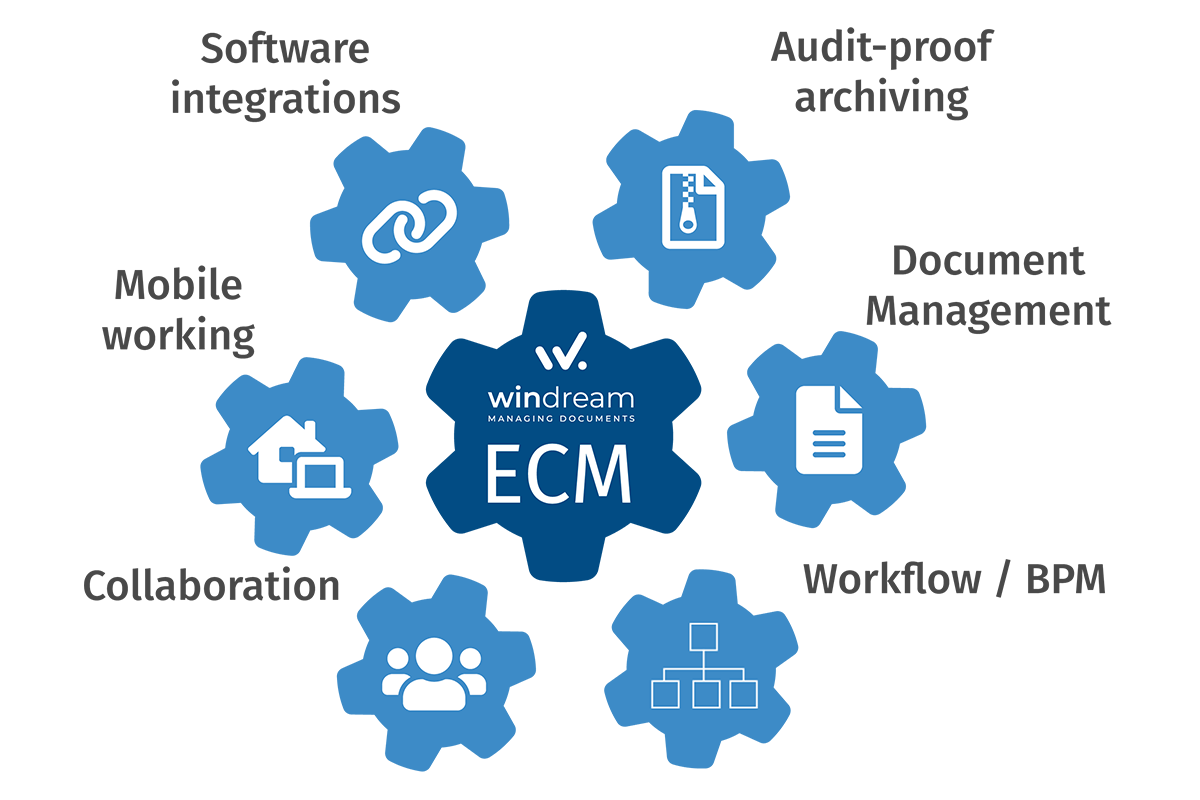Enterprise File Management System: The Ultimate Guide for Students
In today’s digital world, managing files efficiently is crucial for any organization, big or small. This is especially true for enterprises, where a massive amount of data is generated and used every day. An enterprise file management system (EFMS) is a software solution that helps organizations manage their files securely and efficiently. This guide will take you through the basics of EFMS, its benefits, features, and how it can benefit you even if you’re not working in a large corporation yet!
Keywords: Enterprise File Management System, EFMS, file management, document management, data management, collaboration, security, cloud storage, automation, efficiency, productivity
What is an Enterprise File Management System (EFMS)?
Imagine your school’s library. It’s organized, right? Books are categorized, shelved properly, and you can easily find what you need with a little searching. An EFMS is like a digital library for your organization. It’s a centralized system where all your company’s files – documents, images, videos, and more – are stored, organized, and managed. Instead of scattered files on individual computers or shared drives, everything is in one place, accessible to authorized users. This makes it easier to find, share, and collaborate on documents.
Keywords: EFMS Definition, Enterprise File Management Software, Centralized File Storage, Digital Library, File Organization
Why is an EFMS Important?
An EFMS offers numerous advantages for organizations of all sizes. Think about how much time you spend searching for lost files or struggling to share documents with classmates. An EFMS drastically reduces this wasted time and effort.
| Benefit | Description | Example |
|---|---|---|
| Improved Efficiency | Streamlined workflows, faster access to information. | Quickly finding the latest version of a project document. |
| Enhanced Collaboration | Easier sharing and co-editing of documents. | Multiple team members working on a presentation simultaneously. |
| Increased Security | Secure storage and access control, preventing unauthorized access. | Protecting sensitive financial data from unauthorized viewing. |
| Better Organization | Centralized storage and advanced search functionalities. | Easily finding a specific document from a vast collection of files. |
| Reduced Costs | Less paper usage, improved efficiency leading to reduced labor costs. | Saving money on printing and storage of physical documents. |
Keywords: EFMS Benefits, Efficiency Gains, Collaboration Tools, Data Security, Cost Savings, Improved Workflow
Key Features of an EFMS
A robust EFMS provides a range of features designed to improve file management. Here are some key ones:
- Centralized Storage: All your files are stored in one secure location, accessible from anywhere with an internet connection.
- Version Control: Track changes to documents and revert to previous versions if needed. No more confusion over which version is the latest!
- Access Control: Control who can view, edit, and download specific files, ensuring data security.
- Metadata Management: Add tags and keywords to files to make them easier to find using robust search functionality.
- Workflow Automation: Automate tasks like approvals and routing of documents.
- Integration: Integrate with other business applications like CRM or ERP systems for a seamless workflow.
- Search Functionality: Powerful search tools allow you to quickly find specific files based on keywords, metadata, or other criteria.
- Audit Trails: Track all file activity, including who accessed, modified, or deleted files, for accountability and security.
- Mobile Accessibility: Access your files from your smartphone or tablet.
Keywords: EFMS Features, Centralized Storage, Version Control, Access Control, Metadata, Workflow Automation, Integration, Search, Audit Trail, Mobile Access
Types of EFMS
EFMS solutions come in different forms, each with its own strengths and weaknesses. The best choice for your organization depends on your specific needs and budget.
- On-Premise EFMS: The software is installed and maintained on your organization’s own servers. This offers greater control but requires significant upfront investment in hardware and IT support.
- Cloud-Based EFMS: The software and data are stored on the provider’s servers. This is often more affordable and scalable, with easier access from anywhere. However, you rely on the provider for security and uptime.
- Hybrid EFMS: A combination of on-premise and cloud-based solutions, offering a balance of control and flexibility.
Keywords: EFMS Types, On-Premise, Cloud-Based, Hybrid, Software as a Service (SaaS), Cloud Storage
How EFMS Benefits You (Even Now!)
You might think EFMS is only for large corporations, but the principles apply to you too! Think about your school projects, your personal files, or even your social media. Organizing your digital life using the concepts behind EFMS can make you much more productive.
| Application | How EFMS principles help |
|---|---|
| School Projects | Keep different versions of your projects organized and easily accessible. |
| Personal Files | Organize photos, documents, and other files efficiently. |
| Social Media | Manage your online presence and content effectively. |
| Collaboration (with friends) | Share documents and collaborate on projects with others. |
By using folders, naming conventions, and cloud storage (like Google Drive or Dropbox), you’re already applying some EFMS principles. Learning to organize your digital files effectively now will make you a more valuable asset in any future workplace.
Keywords: Personal File Management, Student File Management, Digital Organization, Productivity Tips, Cloud Storage Benefits
Choosing the Right EFMS
Selecting the right EFMS requires careful consideration of several factors. Here’s a checklist to help you (or your future employer) choose wisely:
- Scalability: Can the system handle your current and future needs?
- Security: What security measures are in place to protect your data?
- Integration: Does it integrate with your existing systems?
- User-Friendliness: Is the system easy to use and navigate?
- Cost: What are the initial and ongoing costs?
- Support: What level of support does the vendor provide?
- Compliance: Does the system meet relevant industry regulations?
Keywords: EFMS Selection Criteria, Scalability, Security Features, System Integration, User Experience, Cost Analysis, Vendor Support, Compliance
The Future of EFMS
EFMS is constantly evolving, with new features and capabilities emerging all the time. Expect to see increased integration with artificial intelligence (AI) for tasks like automated tagging and content classification. Expect even more sophisticated security measures, and greater emphasis on mobile accessibility and collaboration tools.
Keywords: Future of EFMS, AI Integration, Enhanced Security, Mobile Collaboration, Emerging Technologies
Conclusion
An Enterprise File Management System is a powerful tool that can significantly improve the efficiency, security, and collaboration within any organization. While the full implementation might seem complex, the underlying principles of organization, accessibility, and security are applicable to everyone, regardless of age or profession. By adopting good file management practices now, you’re building a valuable skillset that will benefit you throughout your academic and professional life.
Frequently Asked Questions (FAQs)
-
Q: What is the difference between EFMS and DMS?
- A: While the terms are often used interchangeably, Document Management Systems (DMS) typically focus on managing documents specifically, whereas EFMS has a broader scope, encompassing all types of files.
-
Q: Is cloud storage an EFMS?
- A: Cloud storage is a component of many EFMS solutions, but it’s not an EFMS itself. An EFMS provides additional features like version control, access control, and workflow automation.
-
Q: How much does an EFMS cost?
- A: The cost varies greatly depending on the size of your organization, the features included, and whether it’s on-premise or cloud-based.
-
Q: Is an EFMS difficult to use?
- A: Modern EFMS solutions are designed to be user-friendly, with intuitive interfaces and helpful training resources.
-
Q: How can I learn more about EFMS?
- A: You can research various EFMS providers online, read industry publications, or take online courses on file management and data organization.
This article provides a comprehensive overview of enterprise file management systems, tailored for an audience of students in grades 8 and 9. Remember, the principles of organization and efficient file management are valuable skills for anyone, regardless of their career path.



